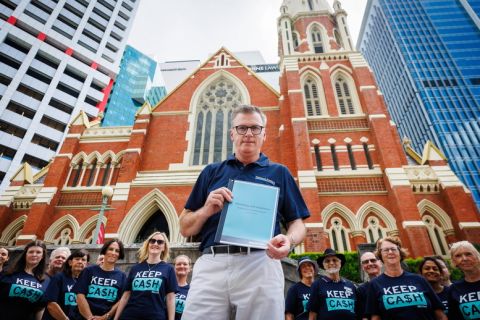Media Release: Intergenerational report - opportunity for change
Mr Henschke said it’s important for government to adjust its policy settings and to make the most of our
ageing population.

Thursday’s release of Treasury’s 2023 Intergenerational Report (IGR) is an opportunity to change the way
Australians view older people, their capacity, and contribution to our country.
Chief Advocate Ian Henschke said while the report predicts an ageing population will increase government
spending on health and aged care, this is an opportunity, not a burden.
Mr Henschke said he agrees with the Treasurer’s view that: “The future is full of possibilities for Australia if we
understand the big changes happening in our economy and our society and we position ourselves to make
Australians the major beneficiaries rather than victims.”
“Too often we hear negative language when describing older people. Not only does this reflect poorly on
society, but it also fuels the misconception they are a financial burden,” Mr Henschke said.
“Older people have made significant contributions to society and the economy throughout their lives and
continue to do so in later life as workers, carers and volunteers.
“As Australians grow old, many if not most will rely on health and aged care services. In this regard, we all have
a common interest in ensuring there is adequate services available in later life.
“The focus on costs must be balanced with an acknowledgment that supporting older people is what a good
society does.”
Mr Henschke said it’s important for government to adjust its policy settings and to make the most of our
ageing population. There’s a vast number of willing older people with experience and skills who could
significantly help solve workforce shortages. Yet, the current system penalises pensioners and Veterans who
work more than about one day per week. This must change.
“Intergenerational reports are not foolproof, they’re estimations that have in the past proven wrong as was
the prediction with the cost of the Age Pension which has been going down, not up, because of increased
superannuation returns,” he said.
“There have also been savings because more people are staying in their own homes and not going into aged
care.
“Actuary Michael Rice suggests the best approach is to set a target of total cost of pension and aged care as
percentage of GDP and work towards that over the next 30 years in terms of sustainable economic
management.”
Ian Henschke is available for comment. Please call 0488 047 380 to arrange.






